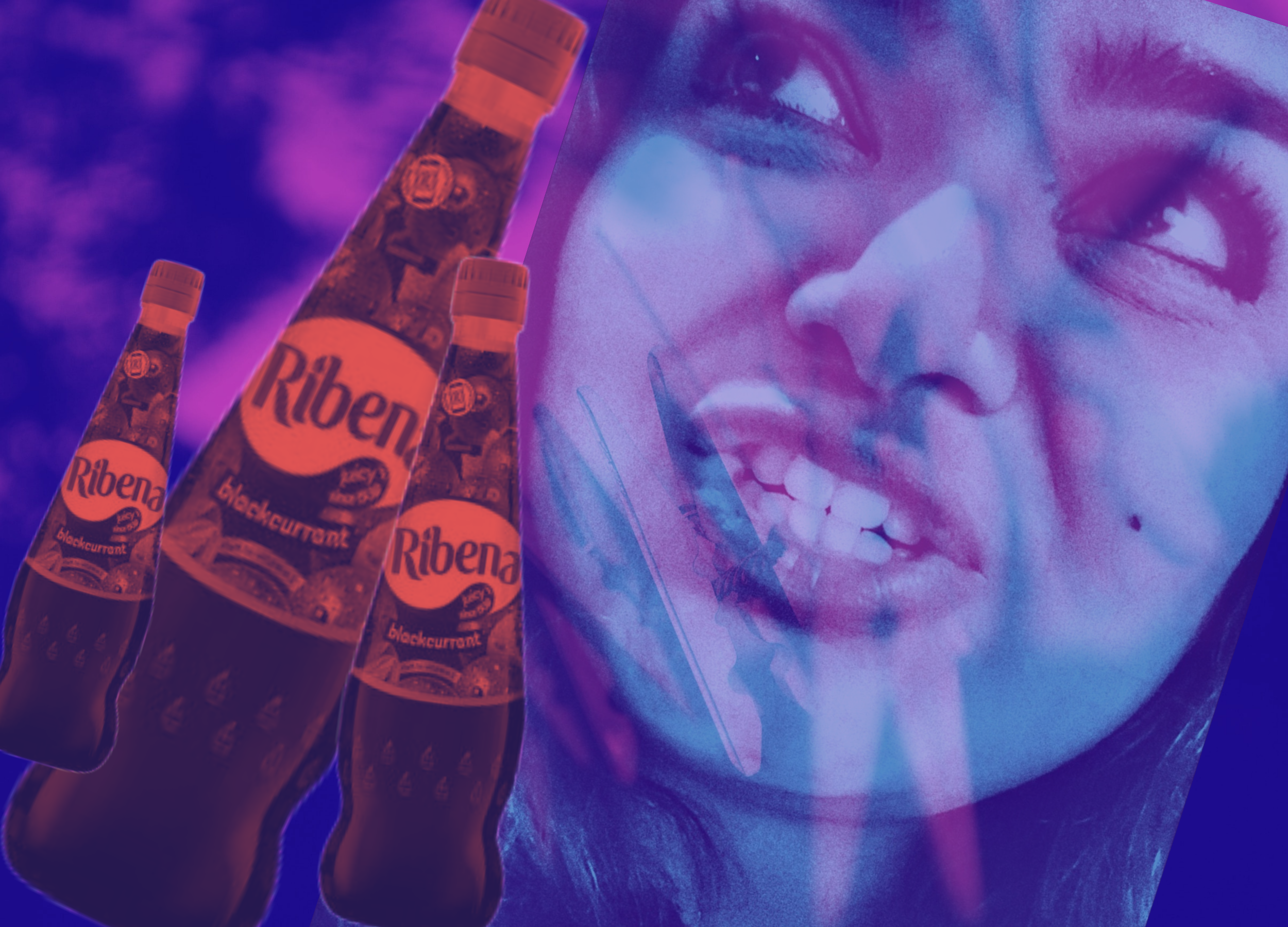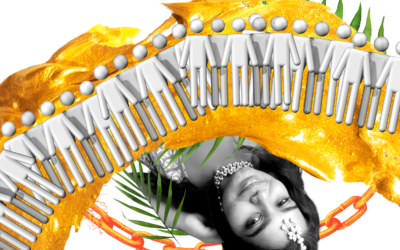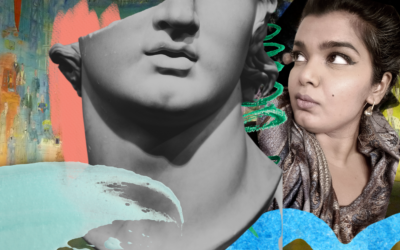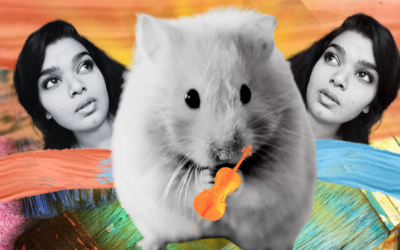All I remember is this.
One moment, my sisters and I were in a comfortable stupor watching The Teenage Mutant Ninja Turtles.
And the next –
SPLASSSSSSSSSSSSSSSSSSSSSH.
I don’t exactly remember how it happened. My entire six-year-old body was covered in the purple ribena drink I was NOT supposed to be drinking on the sofa. (Eating and drinking was to be done strictly at the dining table in our house).
The bright purple fruit drink was dripping, dripping, dripping — drenching the entire sofa cover.
I was frozen: confused and terrified.
Without even saying a word, my sisters switched the TV off. One was removing my shirt and the cushion cover. The other was in the bathroom filling a bucket with soap and warm water. She got my clothes and started furiously hand washing the sins of my clumsy past.
I stood mutely watching my sisters in action. Clea, the tallest of us, hung the clothes under the hot Dubai desert sun.
“Mum will be home by 7. It should dry by then,” she said.
Sure enough, when my mother came home, it was to find all three of her daughters bone-dry and free of purple stains.
She never knew otherwise.
And so, the three sisters could continue in their illegal drinking Ribena on the sofa ways for years to come.
Lessons in how to help
Over the last few years, this memory has bubbled up to the surface of my consciousness. I love this memory. I use it as a guiding star for me. When I think about how to help, I want to channel the pre-teen energy of my sisters.
In particular, here’s what I to point out:
My sisters saw I genuinely had no clue what to do.
I was stuck in shock and fear. I couldn’t even think of washing everything. As a six-year-old, my sisters knew my motor skills were not as developed, nor was my brain as fast. So, the girls stepped in.
Sisters were generous with their help:
They didn’t reprimand me, roll their eyes, or punish me by leaving me out of future illegal-TV-watching-and-Ribena-drinking. Nor did my sisters have any expectations. The girls never held it over my head or tried to blackmail me because they once helped me out of a tight spot.
Sisters knew helping me would help everyone.
They also knew the wrath of my mother would best be escaped if we ALL were in the clear. My sisters knew this was in the favor of the collective good.
Separating shame from help is crucial:
There is no shame in asking for, offering or receiving help. This is what my sisters did for me at that moment. They acknowledged that as a six-year-old, I didn’t have the motor and cognitive skills needed to work myself out of this tight spot. They helped without making me feel like I owed them something for it or that I was lesser than.
Navigating nuance when helping
When we help grown adults…there’s a lot more complexity at play. After years of playing ‘the Savior’, I’ve come to appreciate the multiple factors at play. Here are questions I use to guide my inquiry:
- Personal inquiry: Why am I trying to help? What parts of my identity, ego and history may be influencing my desire to help? Am I tying my self-worth to my
ability to affect change? Are there any alarm bells going off…listen closely…
- The other: Is this something the person needs help with? How do we respect another’s autonomy? Sometimes, all we can do is ask them – How can I help? This is a powerful way of bearing witness. It helps the other person know they are being seen. It is a way to acknowledge ‘all is not well’ without being overbearing.
- Systemic inquiry: What barriers may be in place which we may or may not be able to overcome? What are the limitations of our collective action? What is our long-term responsibility here? Where are the icky fingers of oppression showing up? How does my unique positionality and privileges enable me to help this person in a way they may never be able to? How does my education and awareness shape my understanding of the different power dynamics shaping this problem?
Complex – yes.
And still, to quote Glenon Doyle – ‘We can do hard things.’
The call we all face in our lives is to help. To help ourselves, each other, our communities and our collective consciousness.
Above all else, I want to leave you with this:
No matter the complexity of the issue – what I’ve learned from my sisters is that they helped. And they still help.
Every single time I needed help, I received help from them.
What I appreciate about them is their help doesn’t come with conditions or boundaries. Their help is easy, generous and generative.
They’re generous without depleting themselves or burning out. I feel they are in touch with a deeper sense of wisdom which tells them how to help.
And, so, I leave you with this wish – to go forth and take care of each other.
Be generous with your energy, skills and time.
If someone needs help, doesn’t even know it AND you can help… please help.




